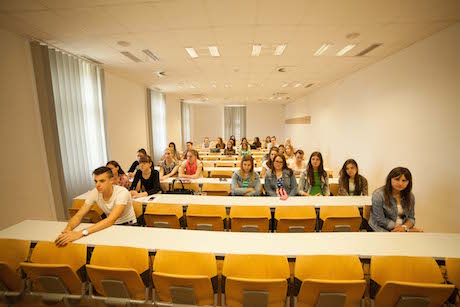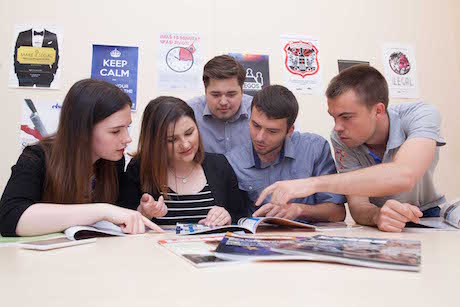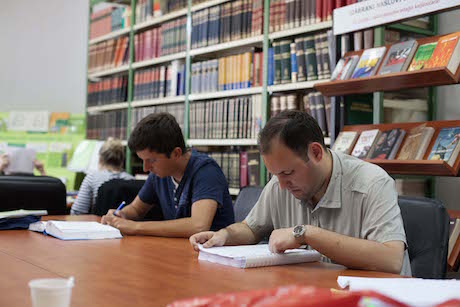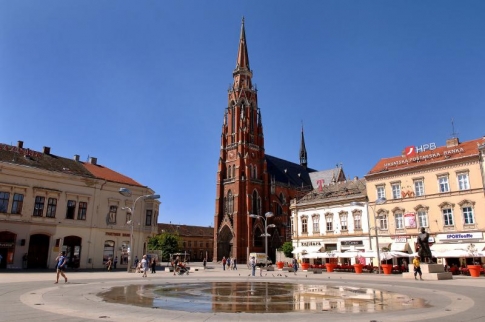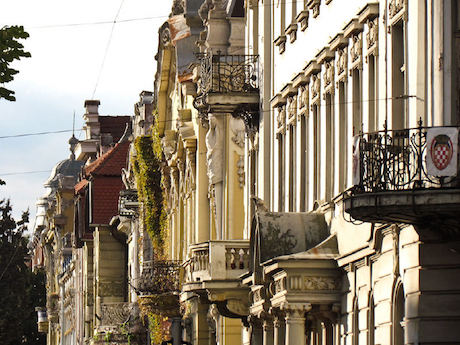The Faculty today has 55 employees at research, associate and teaching positions, as well as 32 emloyees in administrative, technical and maintenance positions. Five distinguished professors are nowadays the Faculty’s professores emeriti: Ivan Mecanović, former Rector of the University of Osijek, Vladimir Srb, one of the first Deans, Branko Babac, former Croatian Minister of Justice and Administration and Ombudsman, Vladimir Ljubanović member of State’s Attorney Council and president of the Amnesty Commition, as well as Zvonimir Lauc member of Judiciary Council and founder of the Croatian Institute for Local Self-government (HILS). Since its foundation, more than 5168 law graduates and 663 masters of law have completed the studies at the Faculty of Law, and since the foundation of the Professional Study of Administrative Law in 1982, more than 1,030 administrative lawyers and bachelors of administrative law graduated from the Faculty as well. Faculty annually enrolls about 400 students.

on 22 December 1975
and is one of the oldest higher education institutions
within the Josip Juraj Strossmayer University of Osijek.
The Inception of Law Studies in Osijek
The very inception of law studies in Osijek date back to 1961, when the University of Zagreb's Faculty of Law organised its short-lived study of law here. This was followed by the introduction of continuous education of lawyers as part of the Study of Law at the Faculty of Economics in Osijek in 1973. Two years later, lack of qualified lawyers in the regions of Slavonia and Baranja and efforts to raise and improve the educational profile of the local populace were the core reasons that the Study of Law was expanded into a fully-fledged Faculty of Law.
In its first years of activity, the teaching staff was mostly comprised of teachers from the Faculty of Economics in Osijek and renowned visiting professors of the University of Zagreb's Faculty of Law. In the mid-1980s, thanks to selfless efforts of the staff and the first Dean, Professor Dragutin Rilke, the Faculty managed to appoint its own teachers for all courses. The Faculty of Law in Osijek is organised into 10 Chairs, each comprising mutually related subjects, with the other organizational units being the Library, Secretariat, Law and Economics Clinic, Green Law Clinic, Law Clinic OSIJEK PRO BON and the Lifelong Learning and Foreign Languages Section.

Things can alwaysbe better!
We need to keep pace with the times and new circumstances, circumstances that bring challenges, but circumstances which first and foremost bring possibilities and opportunities – possibilities and opportunities our employees and students can successfully take advantage of.
Tunjica Petrasevic, PhD, Associate Professor
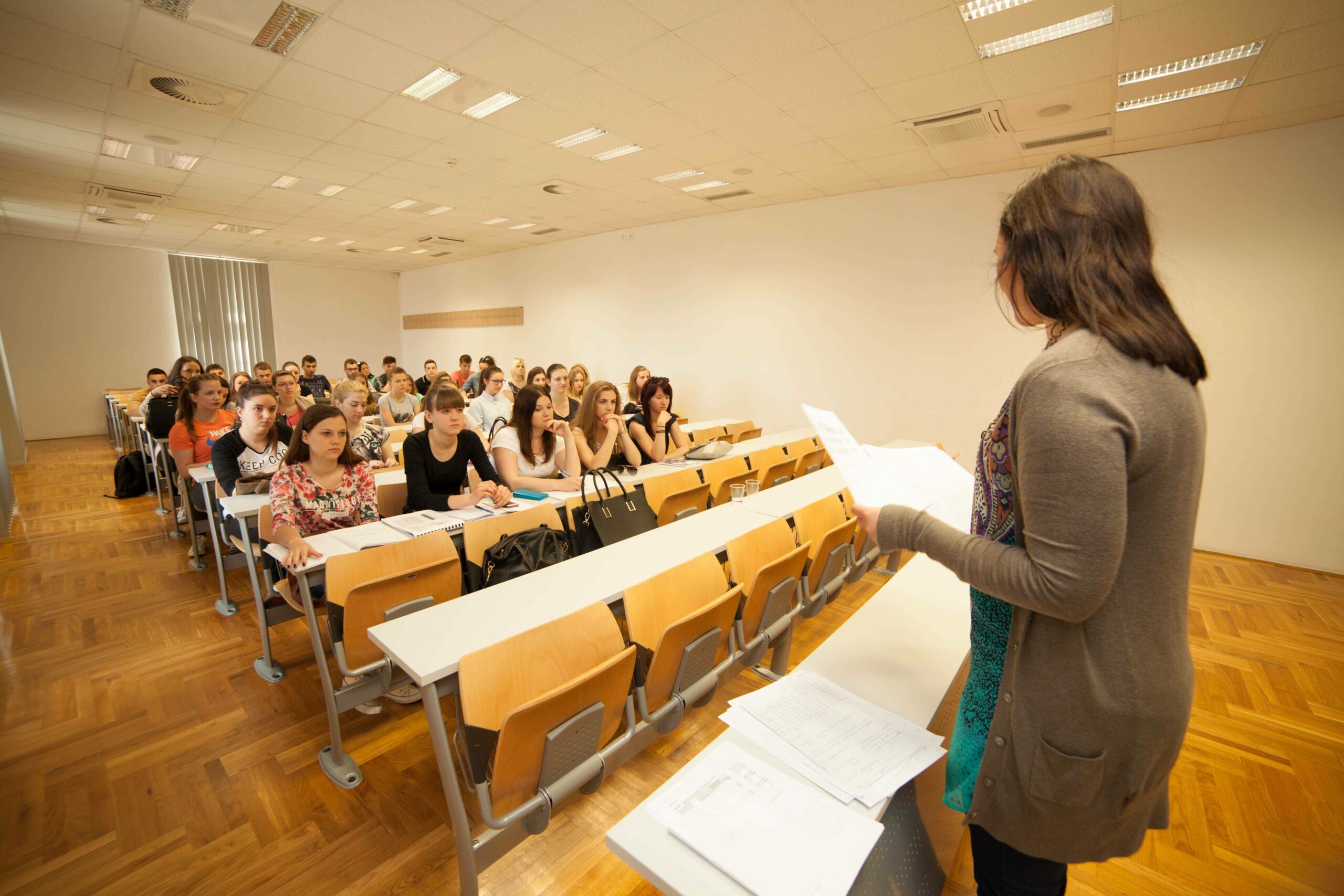
Mission
The Faculty's mission is to attain excellence in scientific research and teaching processes with the aim of continuous development and advancement of activities in all of its constituent units and in lifelong learning, providing students with knowledge and skills that meet the challenges of modern society.
Vision
The Faculty's vision is to become an influential higher education institution, recognisable as a socially responsible organisation that provides superior education and research and advances knowledge, justice and public welfare in the country and the world.
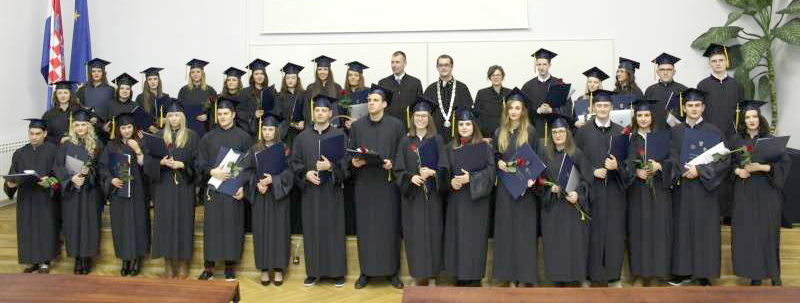
Our students
There are 3,670 students currently studying at the Faculty of Law in Osijek, comprising a significant share in the University's total population. Through their work, activities and achievements in numerous competitions, moot court simulations, student clinics, practical trainings and sporting events, they have accomplished significant results and proudly represented their Faculty.
Teacher/student ratio
1:25
New students each year
400
3 student associations
3
Research
For more then four decades of the Faculty's existence, several dozens of international and national scientific research projects have been implemented. Its EU-funded projects, such as Jean Monnet chairs and modules, as well as those financed by the Croatian Science foundation, deserve special mention.
Scientific and expert projects
80
Jean Monnet Chairs
3
Jean Monnet Modules
2
Scientific journals
3
Deans of the Faculty of Law Osijek
Their work was marked by various social and political circumstances, Faculty's needs and development strategies. In the early years, efforts were focused on strengthening and building the internal educational and scientific capacities and positioning the Faculty within the newly-formed academic community of the 1970s and 1980s. The end of the Communist period marked a shift towards establishing stronger connections with economic operators in the region, and the war and post-war 1990s required significant efforts in securing the normal functioning of the academic life and research activity. In recent years, the Faculty has been facing the challenges of harmonisation with and functioning within the frame of the Bologna Process, as well as of providing a vertical higher education structure at the undergraduate, graduate, postgraduate doctoral and professional levels and lifelong learning programmes. Spatial issues related to the number of students and significant influx of young research and teaching staff have in recent years resulted in the need to secure a permanent location for the Faculty of Law in Osijek, consistent with the requirements of universities in the 21st century.
The quality of teaching and scientific research can be fostered and improved only through continuous efforts to create links between the practice and theory of law, active involvement of students in law as a living matter that significantly affects human fates, cooperation with state attorneys, legal practitioners, courts, economic operators and civil society organisations. The Faculty's mission is to prepare students for valuable and independent work within the frame of legal profession and give them the necessary basics for further professional and academic profiling pro futuro. Permanent investment into human resources, equipment, research materials and into securing adequate working conditions for students and the staff is therefore conditio sine qua non in terms of the subsistence and prosperity of the Faculty as one of the oldest constituents of the Josip Juraj Strossmayer University of Osijek and the only higher education institution in the field of law in eastern Croatia.
Since its foundation in 1975,the following deans served at the Faculty:
Josip Juraj Strossmayer University
The University of Osijek is the third oldest university in Croatia and is named after the philanthropist and bishop Josip Juraj Strossmayer (1815 – 1905). It currently has 24 constituents, including 11 faculties, 5 university departments and an academy of arts with close to 22 thousand students attending courses in 88 academic and nine professional studies. The University's goal is to develop into a modern European higher education institution as a centre of excellence.
45 years
13 Faculties
1 Academy
City of Osijek
(Lat. Essekinum; Ger. Essegg; Hun. Eszék)
Osijek is an important administrative, judicial, financial, economic, scientific, educational and cultural centre of Osijek-Baranja County and the largest city in eastern Croatia, situated on the right bank of the river Drava. According to the 2001 Census, the city and its suburbs have a population of 114,616.
City of parks
17
City of bicycles
34 km
City of Croatia's oldest beer
since 1695


